On Global Anticorruption Blog (Matthew Stephenson’s blog)
A Group of International Jurists and Scholars Condemns the Conviction of Former Brazilian President Lula as Unfair and Politically Motivated. A Group of Brazilian Prosecutors Defend Their Conduct, and the Conviction. Read Their Dueling Open Letters Here!
Posted on September 12, 2019 by Matthew Stephenson
One of the biggest stories in the anticorruption community over the last few months—and one that we’ve featured extensively here on GAB—has been the controversy swirling around the so-called “Lava Jato” (Car Wash) anticorruption operation in Brazil, in light of private text messages among the Lava Jato prosecutors, and between prosecutors and then-Judge Sérgio Moro. These messages were stolen from hacked cell phones and provided to The Intercept, which published a series of stories based on them and also shared them with other media outlines. Critics, including the Intercept journalists, have argued that these messages show unethical conduct, political bias, and due process violations by the Lava Jato prosecutors and by Judge Moro, and that this alleged misconduct demonstrates that the convictions of many of the Lava Jato defendants—most importantly, former President Lula—ought to be thrown out. Others remain unconvinced by the most serious accusations of political bias, and find many of the allegations of misconduct questionable. (For my own, somewhat evolving take on these issues, see here and here, and for a useful debate among Brazilian legal experts, see here.)
Recently, a group of international jurists and scholars weighed in, writing an open letter in which they declared their view that, in light of the evidence revealed by the leaked text messages, Lula did not receive a fair trial and was the victim of political persecution. (An English translation of the letter is available here; the original Portuguese text can be found here.) In response, a group of 20 Brazilian Federal Prosecutors wrote a reply to the open letter’s signatories, arguing that the allegations in the open letter were based on an inaccurate, incomplete, or distorted representation of the facts. The prosecutors’ response letter has not previously been published, but the prosecutors have provided me with that letter and given me permission to post a slightly-revised version here.
I have my own views on the merits of the underlying dispute, which I may go into in a later post, but here I just want to present the two letters side by side, in the hope that this will be helpful to others who have been following this controversy and are trying to better understand the complicated questions at issue. I’ll present this in point-counterpoint format, starting with the English translation of the original open letter (with some corrections to apparent errors or ambiguities in the original translation linked above), and then presenting the prosecutors’ rebuttal:
POINT: Lula Was Not [Fairly] Tried, Was the Victim of Political Persecution
We, lawyers, jurists, former ministers of justice and former members of Supreme Courts of Justice from various countries, would like to call for consideration the judges of the [Brazilian] Supreme Court and, more broadly, the public opinion of Brazil for the serious [flaws in] the proceedings filed against Lula.
The recent revelations by journalist Glenn Greenwald and staff at The Intercept news site, in partnership with Folha de Sao Paulo and El País newspapers, Veja magazine and other media, have appalled all legal professionals. We were shocked to see how the fundamental rules of Brazilian due process were violated without any shame. In a country where justice is the same for everyone, a judge cannot be both judge and party to proceedings.
Sérgio Moro not only conducted the process partially, he led the prosecution from the outset. He manipulated the mechanisms of [cooperation agreements with prosecutors], directed the work of the prosecutor, demanded the replacement of a prosecutor he was not satisfied with, and directed the prosecution’s communication strategy.
In addition, [he wiretapped] Lula’s lawyers and decided not to comply with the decision of a judge who ordered Lula’s release, thus grossly violating the law.
Today, it is clear that Lula [did not receive] a fair trial. It should be noted that, according to Sergio Moro himself, [Lula] was convicted [based on] “undetermined facts.” A businessman whose testimony gave rise to one of the former president’s convictions even admitted that he was forced to construct a narrative that would incriminate Lula under pressure from prosecutors. In fact, Lula has not been tried [fairly], [and he] was and is the victim of political persecution.
Because of these illegal and immoral practices, Brazilian justice is currently experiencing a serious credibility crisis within the international legal community.
It is indispensable that the judges of the Federal Supreme Court fully exercise their functions and [act as] the guarantors of respect for the Constitution. At the same time, we expect the Brazilian authorities to take all necessary steps to identify those responsible for these very serious procedural deviations.
The fight against corruption is today an essential issue for all citizens of the world, as is the defense of democracy. However, in Lula’s case, not only was justice instrumentalized for political ends, but the rule of law was clearly disrespected in order to eliminate the former president from the political dispute [i.e., the 2018 presidential election].
There is no rule of law without due process of law. And there is no respect for due process when a judge is not impartial but [instead] acts as head of the prosecution. In order for the Brazilian judiciary to restore its credibility, the Federal Supreme Court has a duty to release Lula and nullify these convictions.
List of Signatories
Bruce Ackerman, Sterling Professor of Law and Political Science, Yale University
John Ackerman, Professor of Law and Political Science, National Autonomous University of Mexico
Susan Rose-Ackerman, Emeritus Professor Henry R. Luce of Jurisprudence, Yale University School of Law
Alfredo Beltrán, Former President of the Constitutional Court of Colombia
William Bourdon, lawyer registered with the Paris Bar
Pablo Cáceres, former president of the Colombian Supreme Court
Alberto Costa, Lawyer, Former Minister of Justice of Portugal
Herta Daubler-Gmelin, lawyer, former Minister of Justice of Germany
Luigi Ferrajoli, Professor Emeritus of Law, Rome Three University
Baltasar Garzón, lawyer registered with the Madrid Order
António Marinho e Pinto, lawyer, former president (president) of the Portuguese Bar Association
Christophe Marchand, lawyer registered with the Brussels Order
Jean-Pierre Mignard, lawyer registered with the Paris Bar
Eduardo Montealegre, former president of the Constitutional Court of Colombia
Philippe Texier, Former Judge, Honorary Counsel of the Court of Cassassan of France, Former President of the United Nations Economic and Social Council
Diego Valadés, Former Judge of the Supreme Court of Justice of Mexico, Former Attorney General of the Republic
Gustavo Zafra, former ad hoc judge of the Inter-American Court of Human Rights
***
COUNTERPOINT: The Prosecution of Lula Was Fair and Unbiased, and the Claims to the Contrary in the International Jurists Open Letter Are Based on an Inaccurate Representation of the Facts
As Federal Prosecutors and Federal Circuit Prosecutors of the Car Wash Task Force, together with Federal Circuit Prosecutors acting in related cases before the Federal Circuit Court for the 4th Region, we direct this letter to the jurists who issued a statement alleging that Lula was a victim of political persecution, in order to vehemently refute it. We would like to present the following facts, which we believe were either not brought to the attention of the letter’s signatories, or were presented in a distorted way. We note that the misjudgments about the assumptions and the conclusions reflected in that statement do not hinder the deep respect we hold for those who signed the letter.
1. There are eight criminal cases against former President Lula underway in three different Federal Courts, all of which are handled by independent prosecutors and judges who are selected by public competitive examinations and hold no party ties.
Former President Lula is formally accused in eight criminal cases in Brazilian courts. Only three of these cases are docketed in the Federal Court of Curitiba (where Judge Moro previously served).
The three criminal cases handled by the 13th Federal Court of Curitiba concern corruption and money laundering, and they are part of the Car Wash Operation. In these cases, the former president is accused of contributing to the massive corruption and embezzlement scheme managed by directors that he appointed to Petrobras, the state-owned oil company, with the assistance of members of his political party and the other parties in the governing coalition. In addition, in these three cases former President Lula has been accused or convicted of receiving from contractors (directly or indirectly) improper benefits worth BRL 19,749,964.70 (USD 4,937,491.18). Of these the three criminal proceedings against the former President in Curitiba, Judge Sergio Moro was the presiding judge in only one of them. In the second case, he was convicted by Judge Gabriela Hardt. The third case has not yet been resolved, but it is at an advanced stage, and will be decided by Judge Luiz Antonio Bonat.
The former president is also a defendant in four criminal cases brought before the 10th Federal Court of Brasília. The first one is part of Operation Janus, which is investigating bribery and money laundering related to the state-owned development bank BNDES’s financing of construction projects in Angola on behalf of the contractor Odebrecht. In the second case, which stems from Operation Zelotes (an investigation into crimes related to purchases of Swedish jet fighters and tax subsidies for automotive companies), the former president is accused of influence peddling, corruption, money laundering, and forming a criminal organization. In the third ongoing case against the former president in Brasilia, originally presented by the former Prosecutor General, Lula has been charged with forming a criminal organization. These charges were originally presented before the Supreme Court and then referred to the first instance court. The fourth case in Brasilia, also brought by the Office of the Prosecutor General and then referred to the lower court, alleges that former president Lula received from the contractor Odebrecht a commitment to offer USD 40 million in support of his political party.
Finally, in the Federal Court of Sao Paulo, the former president is a defendant in another investigation related to businesses of the Brazilian group ARG in Equatorial Guinea. The accusation is based on the fact that the former president received BRL 1 million in bribes and acted to launder this money.
There are, therefore, accusations of serious crimes that had their processing admitted by three different Federal Courts, under distinct Circuit Courts. These accusations were made by different prosecutors working in the lower courts in Curitiba, Sao Paulo, and Brasilia, as well as by the Prosecutor General.
Judges and prosecutors of first instance in Brazil obtain their positions through competitive examinations. Judges and prosecutors are also forbidden to engage in political partisan activity, a prohibition that also applies to the Prosecutor General. Each prosecutor and judge is fully independent. Unfounded charges can be reversed in three courts above the first instance through appeals and habeas corpus.
2. There are two criminal convictions against the former president, each delivered by a different judge. The first of these convictions has already been affirmed by seven judges of higher instances, five of whom were appointed by Lula himself or by his successor and co-partisan Dilma Rousseff.
Two of the eight cases mentioned above (both of them related to the Car Wash Operation in Curitiba) have already been tried, and in both cases Lula was convicted. In the first case, the presiding judge was former federal judge Sergio Moro; in the other, the presiding judge was Gabriela Hardt. In Brazil, judges must base their decisions on the facts, the evidence, and the law. In both of these cases, the judge’s detailed examination of the cases was demonstrated by the lengthy and detailed opinions, each of which was over a hundred pages.
The first of these cases (the one in which Judge Moro was the presiding judge) has already been affirmed on appeal by a three-judge panel of the Federal Circuit Court for the 4th Region. Different and independent Federal prosecutors (not the same ones who tried the case before the court of first instance) work before this Circuit Court, and they could have disagreed with the first instance prosecutors. The Circuit Court unanimously affirmed Lula’s conviction. Lula was allowed a second appeal, and this time the case was examined by the Superior Court of Justice (STJ), where four judges once again unanimously upheld the conviction.
In other words, in addition to the two first-instance judges (Judge Moro and Judge Hardt) convicting the former president of corruption and money laundering in separate trials, the first of those convictions has already been affirmed by seven judges on two appellate courts. (The appeals in the second case have not yet been resolved.) And again, of these seven higher-court judges, five were appointed by former President Lula himself or by his successor and co-partisan, former President Dilma Rousseff.
3. The Car Wash Task Force in Curitiba has numerous prosecutors, with no strict hierarchy and with different personal electoral preferences. All of these prosecutors concluded that the cases brought against Lula were fair and legitimate.
The Car Wash Task Force that works before the 13th Federal Court of Curitiba is composed of 15 Federal Prosecutors. (It originally consisted of six Federal Prosecutors, who joined the Task Force before there was evidence of that politicians and political parties were implicated.) Prosecutors in the Task Force have always been chosen for their competence, dedication, and ability to work in groups. None of these prosecutors has any partisan political connection, and their personal political preferences differ. Many of them in fact have voted for former president Lula and his political party in the past, and some voted for his political party in the most recent elections. Furthermore, although the Task Force has a coordinator, there is no boss and no hierarchy among the Task Force prosecutors. The most important decisions are made collectively. The decision to bring charges against former President Lula was a consensus among all members, based on the facts, the evidence, and the law. Moreover, given that each act or decision in the Car Wash Case is subject to intense public scrutiny from the beginning, there is no reason for non-partisan career prosecutors to jeopardize their careers, their investigations, and the very livelihoods of their families by manipulating investigations in order to benefit or prejudice a particular defendant for political reasons.
4. No evidence supports the thesis of a broad political conspiracy, and such a conspiracy is implausible in a bureaucratic apparatus involving more than a hundred people.
As noted above, the Car Wash Task Force includes 15 independent prosecutors with diverse political views and electoral preferences. Furthermore, when one includes the civil servants who work alongside with the prosecutors, over 60 people work in the Task Force directly. In addition, the Task Force also works with dozens of federal police officers (agents, officials, experts, registrars, etc), officers from the Brazilian Federal Revenue Office, and civil servants from other agencies. More than a hundred public servants in total are involved. With all due respect to the distinguished jurists who signed the open letter, the theory that there would be an organized political conspiracy in such a broad technical-bureaucratic apparatus–composed of over a hundred diverse people, involving so many accusations in different places, made and reviewed by independent agents, including judges appointed by President Lula or President Dilma–has no basis in reality.
5. The Car Wash Operation has led to the arrest, prosecution, and conviction of politicians from across the political spectrum.
People from different political parties have been prosecuted and convicted in the Car Wash Operation. The Petrobras scheme, on which the Curitiba investigations are focused, involved not only the “Partido dos Trabalhadores (PT)” (the party of former presidents Lula and Dilma), but also other parties that were part of the governing coalition at the relevant time, such as the “Partido do Movimento Democrático Brasileiro (PMDB)” and the “Partido Progressista (PP)”. Several powerful politicians linked to these latter parties have been accused, including Eduardo Cunha (PMDB) (one of PT’s main political antagonists who was one of the principal organizers of the impeachment of former President Dilma), Senator Romero Jucá, (PMDB), former Senator Edison Lobão (PMDB), former Rio de Janeiro Governor Sergio Cabral (PMDB), former Federal Deputy Pedro Correa (PP). Pedro Correa has been convicted and imprisoned, while Sergio Cabral and Eduardo Cunha were arrested in 2016 and are still in prison.
The Car Wash Task Force has also already initiated civil administrative misconduct cases, based on the corrupt practices, against two of these parties, the PP and the PMDB, and also against a third party, the PSB. More cases against other parties are under consideration.
The leniency agreement that the task force in Curitiba reached with the contractor Odebrecht involved 415 politicians from 26 parties. However, the Supreme Court ruled that cases that did not relate to Petrobras should be referred to other courts, which is what the Task Force then did.
6. The criminal charges brought by the Car Wash Task Force, against 450 defendants, are backed by extensive documentary evidence.
The charges brought by the Car Wash Task Force are supported by substantial evidence, including documents that reveal the operation of a cartel, bribery notices, banking transactions in Brazil and abroad, and blockages of funds. (A single former Petrobras manager had about USD 100 million in Swiss accounts.)
This documentary evidence is complemented by witness testimony, much of it from cooperating defendants. But it’s important to emphasize that the testimony of cooperating defendants is taken only as a starting point for investigations, and is never treated as conclusive. Each potential cooperator is always accompanied by a lawyer and always receives the instruction that they must speak the truth, together with the warning that lies or omissions can result in the termination of the plea bargain agreement and the withdrawal of associated benefits. More than ten companies and more than 150 individuals have agreed to cooperate with prosecutors, and these cooperating defendants have provided material evidence and testimony that has led to a great expansion of the investigations, leading to the prosecution of about 450 people and the return of more than BRL 14 billion to the public coffers.
7. The international jurists’ open letter is based on false premises.
Having made these important clarifications, it is now appropriate to present information that makes us believe that the jurists who signed the letter were misinformed with respect to certain key facts, and that their analysis of the case may have been impacted by distortions promoted by those with an interest in defending Lula and discrediting the Car Wash Operation.
7.1. The allegation that Judge Moro manipulated cooperation agreements is false.
Cooperation agreements (or plea bargains) in Brazil have always been negotiated by the Federal Prosecution Service and the defendant. Each agreement involves a series of meetings with potential cooperating defendants alongside their lawyers, often exceeding ten meetings per case. Most of the agreements are made in conjunction with the Office of the Prosecutor General because they implicate agents with so-called privileged jurisdiction [a Brazilian legal rule that provides special procedural rules for certain high-level public officials], which means that the final decision to approve a cooperation agreement usually rests with the Prosecutor General. In the Car Wash Operation, the Federal Prosecution Service negotiated and signed more than a hundred cooperation agreements, usually holding more than a dozen meetings were held for each negotiation receiving the final approval of the Prosecutor General. The claim that the presiding first-instance judge could manipulate the negotiation of these agreements therefore has no basis in reality, and is not supported by any empirical evidence. Given the process just described, such manipulation would face insurmountable obstacles.
7.2. The allegation that Judge Moro demanded the replacement of a prosecutor is also false.
At no time did Judge Moro demand or even request the replacement of a prosecutor. The text message on which this false allegation is based in fact recommended better training and preparation. The text message in question read as follows: “Dear Sir, your colleague Laura Tessler is an excellent professional, but for questioning at the hearing, she is not doing very well. I’m sorry to say this, but try to discreetly give her some advice, for her own good. A training course would do her well. Please keep this message private.” We suspect that most of the signatories to the open letter never saw the actual text message, but were instead misled by an distorted characterization of its content.
Furthermore, the prosecutor in question–who is a qualified and competent professional–was not in fact replaced. Rather, she attended, on the morning of the supposed message (March 13, 2017), a hearing in a criminal case against former Minister Antonio Palocci (case no. 5054932-88.2016.404.7000). In addition to continuing to hold the hearing in the afternoon of the same day, that prosecutor participated in all subsequent stages of this case, on the following dates: March 14, 2017, March 15, 2017, March 21, 2017, and March 22, 2017. She also remained responsible for all other cases she was handling. The case involving the former President Lula, on the other hand, was handled from the beginning by two other prosecutors, Júlio Noronha and Roberson Pozzobon, who were responsible for nearly all audiences from the beginning to the end, although other prosecutors may have occasionally contributed for some acts and hearings of the case. Therefore, no substitution of prosecutors ever occurred in these cases.
7.3. The allegation that Judge Moro authorized an illegal wiretap of a Lula’s lawyer is based on a misrepresentation.
It is true that Judge Moro authorized a wiretap of the phone of lawyer Roberto Teixeira. However, this is not because Mr. Teixeira was Lula’s lawyer, but because Mr. Teixeira was himself under investigation for actively taking part in corruption and money laundering crimes. Indeed, he was ultimately charged with these offenses (criminal proceedings number 5063130- 17.2016.404.7000 and number 5021365- 32.2017.404.7000, held before the 13th Federal Court in Curitiba). In one of these criminal proceedings, he was convicted of money laundering.
The wiretap on the phone in Mr. Teixeira’s office was therefore legal because he was himself the subject of a criminal investigation. Moreover, when the wiretap was authorized, it was not clear that his office was a law firm. According to documentary evidence in the record, the phone line in question was listed in the Federal Revenue Service’s records as the landline of a company called LILS Lectures (Lula’s company); this is the information that was provided by the company itself to the Revenue Service, and there was no indication, when the wiretap was approved, that the phone in question belonged to a law firm. Moreover, the police authority responsible for executing the wiretaps did not forward any of the telephone conversations to the Federal Prosecution Service or to the courts, as they were not considered relevant.
Thus, the allegation that Judge Moro authorized a wiretap of Lula’s lawyer, though technically correct, is seriously misleading. Moreover, the assertion that this wiretap was illegal is false, as is the insinuation that the wiretap was for purposes of interfering with Lula’s defense or his right to a fair trial. We again suspect that the jurists who signed the open letter were not made aware of the full context.
7.4. The allegation that Judge Moro refused to comply with a judicial order for Lula’s release is also misleading.
It is true that an appellate judge of the Circuit Court, responding to a habeas corpus petition, issued an order that Lula should be released, and that Judge Moro did not immediately comply with this order. Instead, Judge Moro sought further review. The order in question, which had been issued by an appellate judge on duty during a weekend, was reversed later that same same day by the appellate judge in charge of the case, and that second decision denying the release was later confirmed by the President of the Circuit Court.
Furthermore, this incident led to an investigation, requested by the Prosecutor General, of the appellate judge on duty, Rogerio Favretto, who had issued the original release order. Judge Favretto had been affiliated with Lula’s party for over 20 years and had held several official government positions in that party’s governments. And as was observed at the time, Judge Favretto, as the appellate judge on duty (over the weekend), was not legally competent to issue a release order on a habeas corpus petition, because the case had already been decided by the Circuit Court; therefore, under Brazilian law, any habeas corpus release order would have to be issued by the Superior Court of Justice. In fact, according to the Attorney General, Judge Favretto’s order to release Lula, in response to a petition filed over the weekend, was part of a “meticulously orchestrated [scheme], to the detriment of the prevailing law, to achieve the release of the defendant, which had been denied by lawful and competent procedural means.”
In other words, while it’s true that Judge Moro did not immediately order the release of Lula after Judge Favretto’s decision, Judge Moro’s decision was endorsed by two appellate judges of the Circuit Court, including the Court’s president. Given the illegality of Judge Favretto’s order, Judge Moro’s choice to seek review of that order before complying was correct. And in fact it is Judge Favretto’s conduct in this incident, not Judge Moro’s, that has been legally questioned.
7.5. The allegation that Lula’s conviction was based on the testimony of a defendant who was pressured into cooperating is false.
The international jurists’ letter asserts that “[a] businessman whose testimony gave rise to one of the former president’s convictions even admitted that he was forced to construct a narrative that would incriminate Lula under pressure from prosecutors.” This claim is a reference to the cooperating witness Carlos Paschoal and the conviction of the former president Lula by Judge Gabriela Hardt in the case involving the Atibaia country property.
First, the allegation that this individual’s testimony led to Lula’s conviction is untrue. As mentioned previously, the testimony of the cooperating defendants is always analyzed with caution, and is never by itself sufficient to support a conviction. Former President Lula was convicted of having received bribes through the renovation of a country house carried out by the company Odebrecht. In this case, the conviction was based on extensive evidence and did not depend solely on the testimony of the cooperating defendants. The evidence against Lula included, for example, documents from the department of structured operations of the company (and managed its corruption payments), internal e-mails from the contractor referring to the renovation, testimony from other witnesses (not cooperating defendants), receipts and invoices of purchases of materials in the name of “stooges,” analysis of trips taken by the former president to the country house, e-mails seized at the Lula Institute, and documents seized at the site.
Second, Mr. Paschoal subsequently clarified that he had expressed himself inappropriately when he said that he had been “pressured.” He stated that only later did he understand that in order “to be accepted as a cooperator, [I] would need to give more detailed, consistent, coherent, and comprehensive information, in addition to seeking documents that would corroborate what I had to say.” Also, as stated above, prosecutors always demand that whistleblowers tell the whole truth, and any misreprestantation, whether for the benefit or detriment of the defendant, could result in the loss of the benefits of the cooperation agreement. Thus, cooperating defendants have a strong disincentive to lie.
Finally, it should be noted that the prosecutors refused to enter into a cooperation agreement with Antonio Palocci, a member of the Worker’s Party who later entered into an agreement with the Federal Police, where he implicated the former president in criminal acts. This further shows that prosecutors are guided by public interest factors, such as the ability to expand the investigations, rather than the incrimination of specific individuals, when making decisions regarding cooperation agreements.
7.6. The allegation that Lula was convicted based on “undetermined facts” is also false.
The basis for the open letter’s claim that Judge Moro admitted that Lula was convicted based on “undetermined facts” is unclear. To refute this unsubstantiated assertion, one need only read the lengthy judicial opinions, which contain an extensive and detailed examination of the facts and evidence, as well as Brazilian law on corruption and money laundering.
7.7. The allegations that Judge Moro violated legal rules, directed the operation, or acted as a prosecutor are all incorrect.
In Brazil, the Federal Prosecution Service occupies a position in the legal system that differs from prosecution entities in other countries. The Brazilian Federal Prosecution Service is impartial and required to seek justice, rather than to act as an adversary that seeks the conviction of defendants if a case has been made. In fact, it is relatively frequent that requests for acquittal come from the prosecution itself. Judges and prosecutors seek the same objective, the public interest. Moreover, each prosecutor is entitled to functional independence, which means that prosecutors must follow the law and their conscience. There is no functional hierarchy, thereby prosecutors are not required to obey superior decisions in their work.
In the Brazilian system, it is also common for parties to talk to the judge without the other party present. In the investigation phase, where there is no audi alteram partem (“hear the other party”) principle, such contacts are quite ordinary, and in the case of the Federal Prosecution Service, such contacts may be even more intense because the prosecution service acts in all cases of a given criminal court.
Another peculiarity of the Brazilian system is the fact that the judge is authorized by law to proactively determine (ex officio) a series of probative measures, such as gathering testimony, pre-trial detention, and searches and seizures. In other words, the judge may order search and seizure or pre-trial detention without any provocation, and even when the prosecutor’s position is to the contrary. Furthermore, a judge may convict a defendant even if the Federal Prosecution Service requests for his acquittal.
Given this context, it should be clear that occasional contacts between the prosecutor and the judge, focused on the search for the truth and the values of justice, do not mean that the judge directed the work of the Federal Prosecution Service or dictated its strategy. To consider the judge as a a prosecutor, based on the messages in question, means turning a blind eye to Brazilian legal reality.
With respect to the Car Wash Operation, and Lula’s trials more specifically, essential forms have never been neglected, defendants’ fundamental rights have never been violated, and all of the Car Wash’s acts are adequately grounded in facts, evidence, and the law. In addition, claiming that the judge played a prosecution’s role in the Car Wash Operation based on the supposed text messages is inconsistent with other evidence. For example, Judge Moro acquitted more than 20% of the Car Wash defendants and dismissed many dozens of prosecution’s requests. The Federal Prosecution Service, in turn, appealed in 44 of the 45 judgments handed down by former Judge Sergio Moro. This hardly seems like a situation in which the judge is directing the prosecution.
8. Conclusion
For the foregoing reasons, the open letter’s assertion that Lula was unfairly convicted by a partisan conspiracy is simply untrue. We nonetheless respect and admire the jurists and scholars who signed onto this letter, and we believe that they were likely misled by false or incomplete characterizations of the actual facts and circumstances of this case. We therefore submit this letter to correct these misunderstandings.
List of Signatories
ADRIANO AUGUSTO SILVESTRIN GUEDES, Circuit Federal Prosecutor
ALEXANDRE JABUR, Federal Prosecutor
ANA LUISA CHIODELLI VON MENGDEN, Circuit Federal Prosecutor
ANTONIO AUGUSTO TEIXEIRA DINIZ, Federal Prosecutor
ANTONIO CARLOS WELTER, Circuit Federal Prosecutor
ATHAYDE RIBEIRO COSTA, Federal Prosecutor
CARLOS AUGUSTO DA SILVA CAZARRE, Circuit Federal Prosecutor
DELTAN MARTINAZZO DALLAGNOL, Federal Prosecutor
FELIPE D’ELIA CAMARGO, Federal Prosecutor
JANUARIO PALUDO, Circuit Federal Prosecutor
JERUSA BURMANN VIECILI, Federal Prosecutor
JULIO CARLOS MOTTA NORONHA, Federal Prosecutor
LAURA GONCALVES TESSLER, Federal Prosecutor
LUIZ FELIPE HOFFMANN SANZI, Circuit Federal Prosecutor
MARCELO RIBEIRO DE OLIVEIRA, Federal Prosecutor
MARIA EMILIA DA COSTA DICK, Circuit Federal Prosecutor
ORLANDO MARTELLO, Circuit Federal Prosecutor
PAULO ROBERTO GALVAO DE CARVALHO, Federal Prosecutor
ROBERSON HENRIQUE POZZOBON, Federal Prosecutor

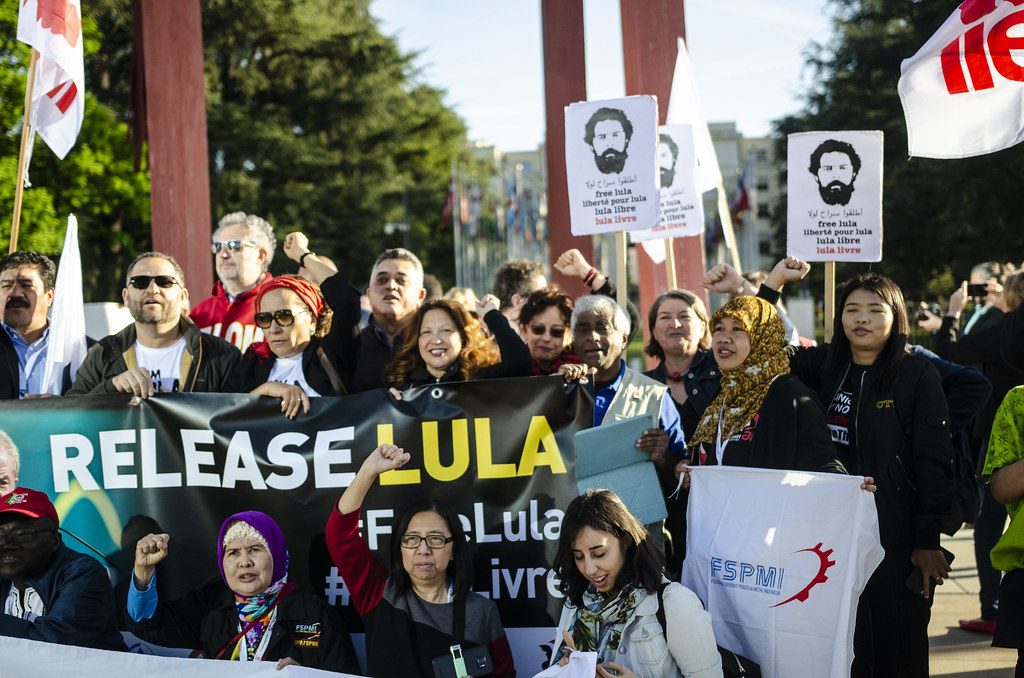
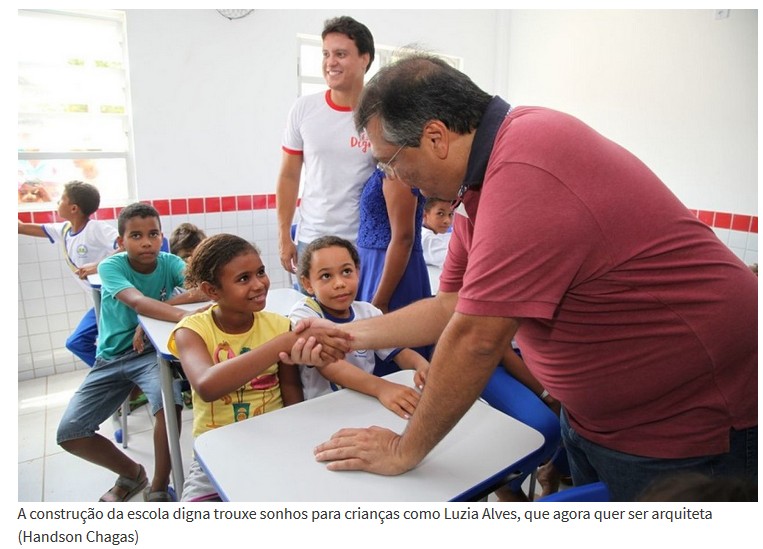

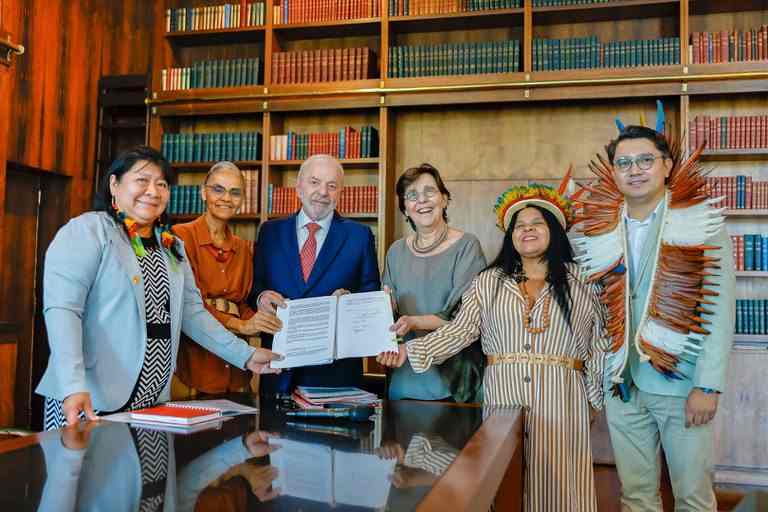
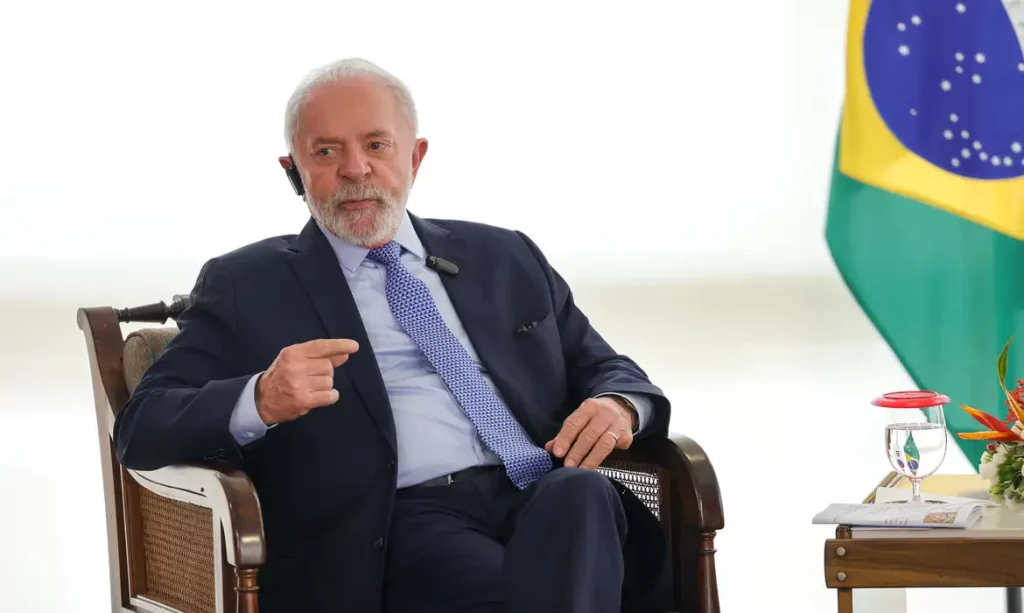
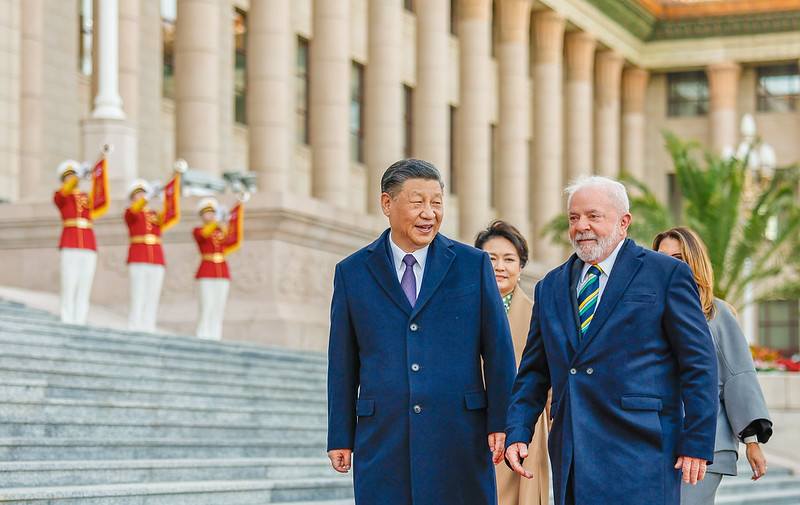
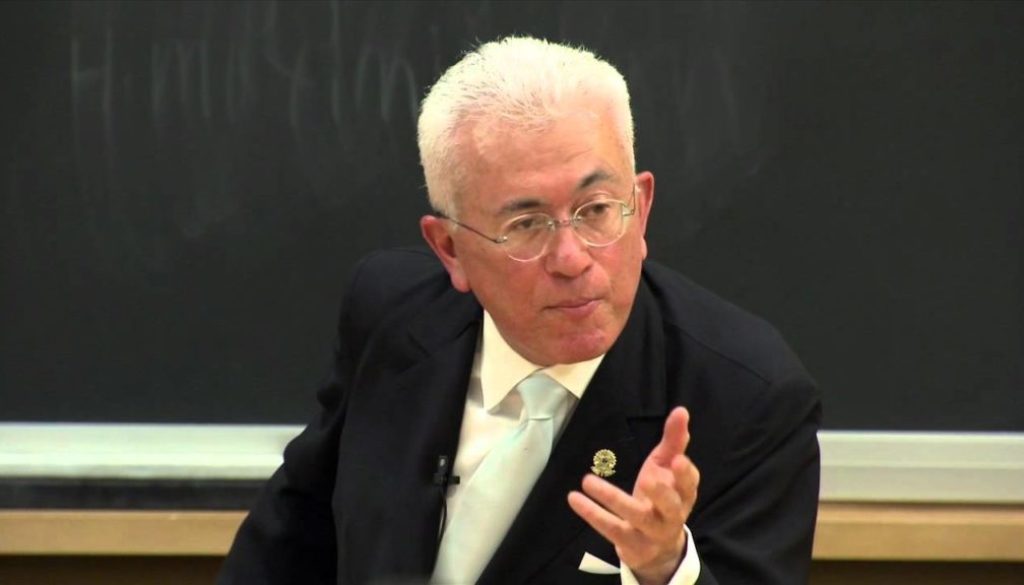
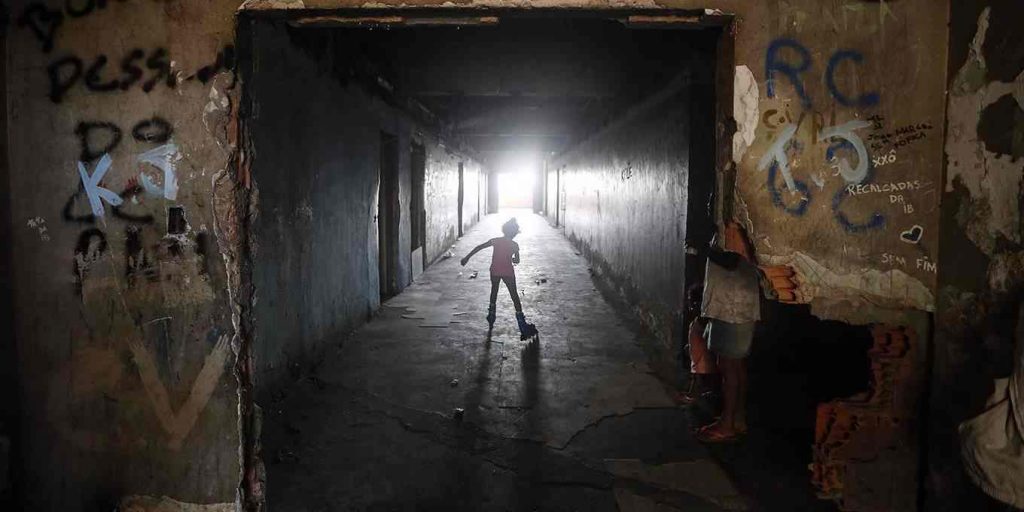
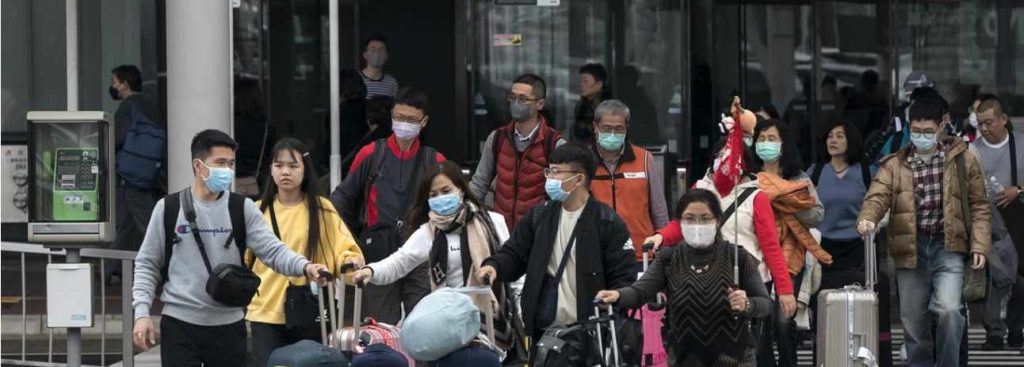
Ulisses
23/09/2019 - 10h14
Ainda publica este texto ridículo dos bandidos da Farsa a jato? Para que? Mostrar quanto são calhordas, ridículos e cara de pau?
Wellington
22/09/2019 - 14h06
Onde o Mundo foi parar…? Cada dia pior.